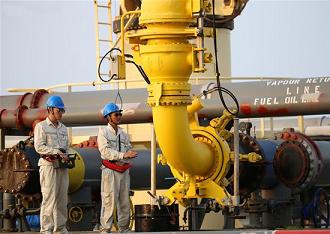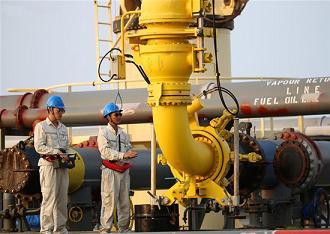
BEIJING, July 12 (Xinhua) -- China will increase its oil and natural gas pipelines during the coming years as the world's largest energy consumer moves to secure stable supplies and clean up the coal-dominated energy mix.
The expansion plan was announced Wednesday in a document jointly released by the National Development and Reform Commission and the National Energy Administration.
The country's pipeline networks will stretch to 169,000 km by 2020, with those for crude, refined oil and natural gas at 32,000 km, 33,000 km and 104,000 km, respectively, according to the document. The total length of the networks will rise to 240,000 km by 2025.
Pipelines for refined oil will reach all cities with a population of 1 million or above, while those with more than half a million residents will have access to pipelines for natural gas.
The oil and gas pipeline networks ensure steady energy flows from foreign sources to the country and from remote border areas to prosperous inland cities.
At the end of 2015, the length of pipelines for crude, refined oil and natural gas was 27,000 km, 21,000 km and 64,000 km, respectively.
Given rapid economic expansion and an increasing population, China's appetite for energy, especially cleaner fuels, is on a steady rise. Around 4.36 billion tonnes of standard coal-produced energy was consumed last year, up 1.4 percent year on year.
The government believes improved oil and gas networks will help safeguard energy security, reduce costs on the economy, and stimulate investment.
Energy imports from countries along the Belt and Road routes will be boosted with the construction of more pipelines. The plan highlighted projects with Russia, Myanmar, and Central Asian countries, and said more import projects will be initiated.
Steady supplies of oil and gas will help the country wean off the reliance on dirtier coal, which, although falling, still accounted for more than 60 percent in the energy structure.
China's crude consumption grew 5.5 percent from a year ago in 2016, and natural gas consumption rose 8 percent. Meanwhile, coal consumption dropped 4.7 percent.




 A single purchase
A single purchase









